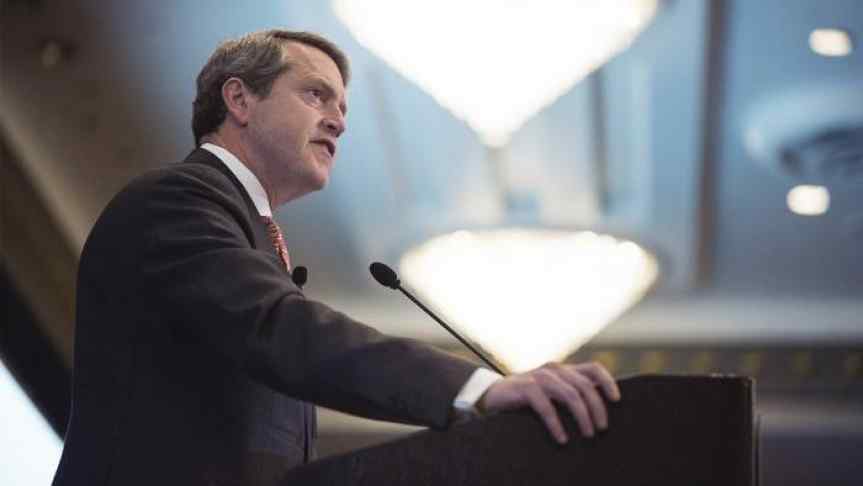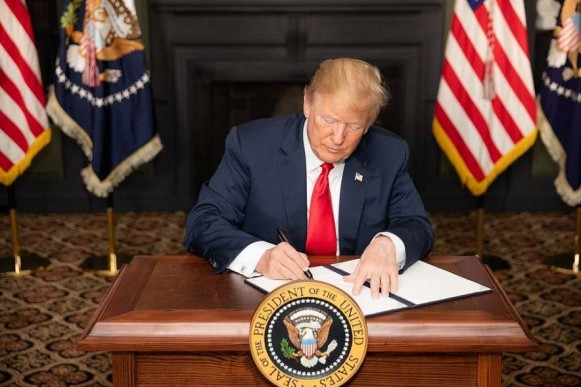
President of St. Louis Federal Bank Dives Deep Into The Economics Of Private Currency
May 15, 2018, 10:39AM by Chris Madill
by Chris Madill
James Bullard, President of the St. Louis Federal Reserve Bank, presented a speech at the CoinDesk Consensus 2018 exploring private currencies
On Monday, May 14, James Bullard, President of the St. Louis Federal Reserve Bank, presented a speech at the CoinDesk Consensus 2018 conference detailing his interpretation of how private and public currencies function in society. The presentation explores the dynamics of how privately issued currencies have played-out historically in the U.S. to help draw conclusions about our current cryptocurrency ecosystem.
Bullard, who holds a Ph. D of Economics draws examples from the 1830s to show how a collection of privately issued banknotes led to a volatile and unreliable monetary system:
“In the 1830s, 90 percent of the U.S. money supply was privately issued banknotes... Contemporaries did not like this system [because] currencies traded at different rates at different times and places.”
-James Bullard President of the St. Louis Federal Reserve Bank
This disjointed collection of private currencies led to a call for a “uniform currency” (one backed by the U.S government) during the Civil War. Bullard then uses today’s example of the current crypto market to show how crypto could be following in a similar path:
“Is something like this happening today? It certainly appears to be. There are lots of privately issued cryptocurrencies, trading at various rates minute by minute. The only reason this is not a bigger issue today is that the total volume of cryptocurrency trade is not that large in relation to the entire economy”
However, Bullard believes that cryptocurrencies (or any private currency) can function in equilibrium with public currencies so long as the private currency serves a purpose. This purpose is definitively simple:
“The private currency [must] facilitate exchange that would not otherwise occur.”
Bullard’s presentation concluded that the U.S. is drifting toward a “non-uniform” currency trading arrangement, a system that society has disliked historically. Although cryptocurrency holds the potential to facilitate a trade 'that would otherwise not occur', the issuance of multiple cryptocurrencies, and the extremely localized and fluctuating exchange rate of such currencies, maybe their downfall,
“Cryptocurrencies may unwittingly be pushing in the wrong direction in trying to solve an important social problem, which is how best to facilitate market-based exchange.”
Disclaimer: information contained herein is provided without considering your personal circumstances, therefore should not be construed as financial advice, investment recommendation or an offer of, or solicitation for, any transactions in cryptocurrencies.

















